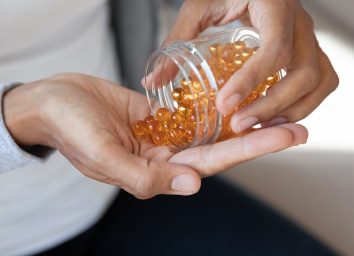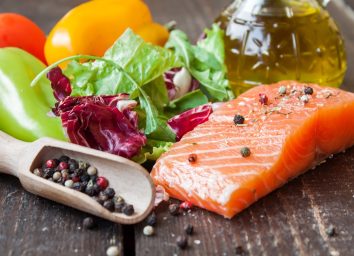The Worst Breakfast Habits for Your Immunity, Say Dietitians
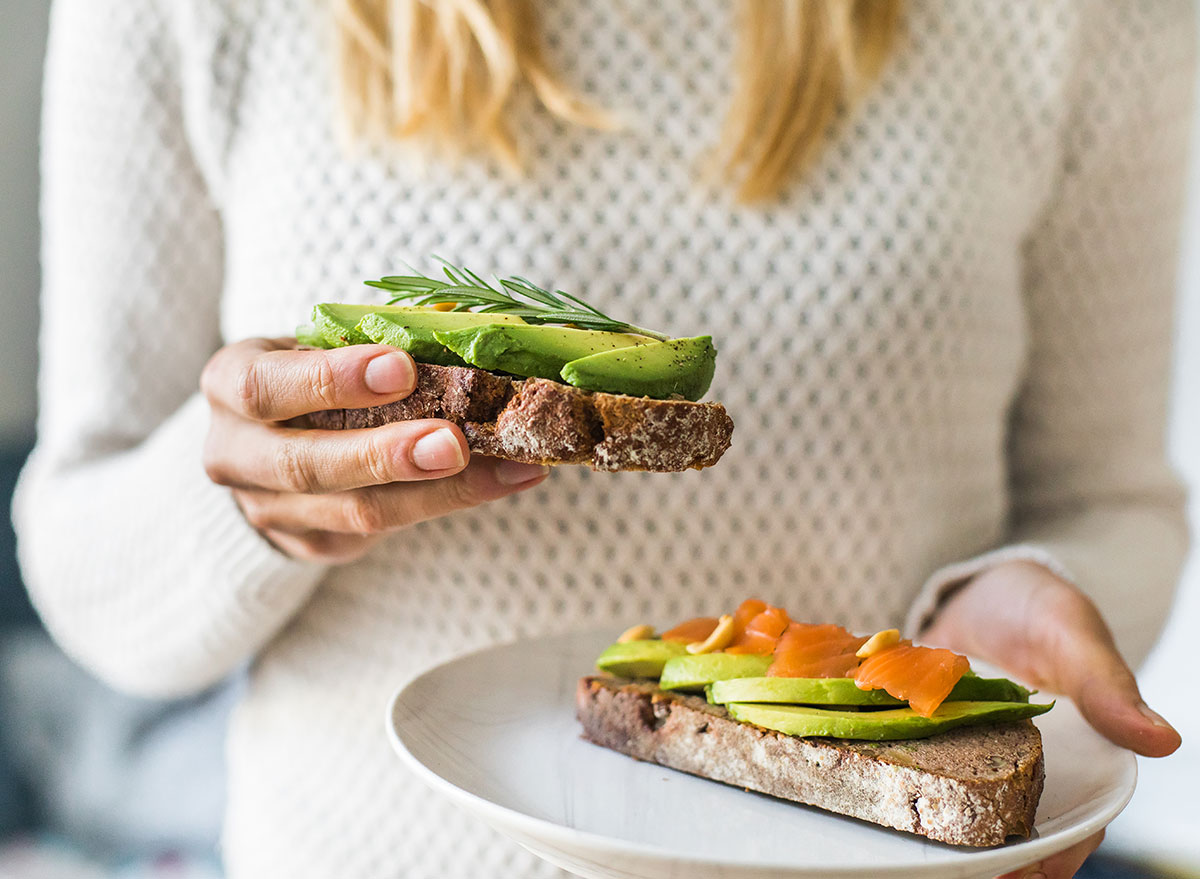
Heading into the colder months of the year means bundling up in your warmest clothes while trying to strengthen your immune system so you can have a fighting chance against flu season.
And while things like supplements and certain exercises can help with your immunity, the eating habits you choose make a big difference in the strength of your immune system as well. In fact, even some of your breakfast habits can derail your immunity in ways you may not have realized.
To learn about the breakfast eating habits that could be ruining your immune system, we talked with Courtney D'Angelo, MS, RD, author at GoWellness, and Lauren Manaker, MS, RDN, author of The First Time Mom's Pregnancy Cookbook and Fueling Male Fertility and member of the Eat This, Not That! Medical Expert Board.
Read on for their answers to the worst breakfast habits, and for more tips on boosting your immune system, make sure to check out Dietitians Say This is the Best Diet for Boosting Your Immunity.
Too much added sugar
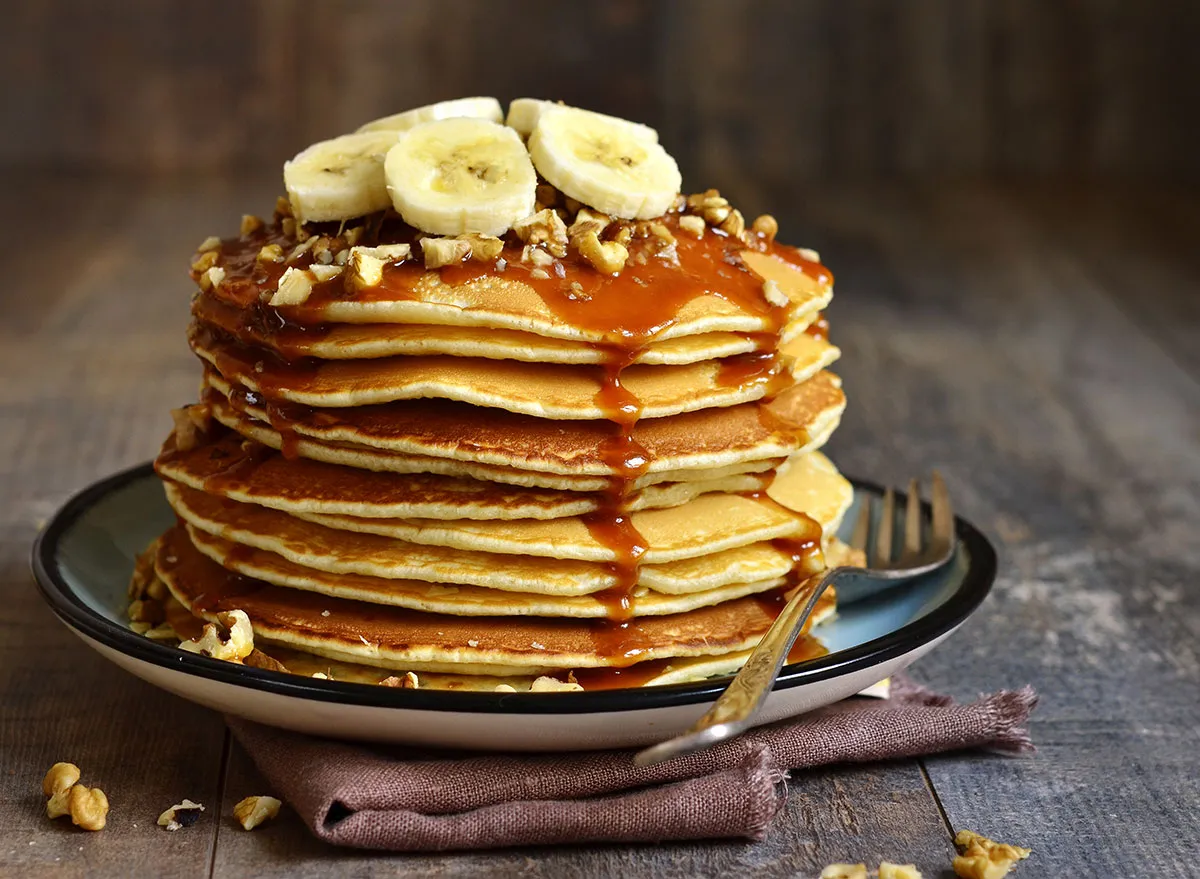
When it comes to eating a breakfast that is going to help you strengthen your immunity, you may want to reconsider how much sugar you're consuming in that meal.
"Breakfast foods like sugary cereals, pastries, pancakes, and waffles are all loaded with added sugar," says D'Angelo, "and consuming too much sugar over time can negatively impact your white blood cells, which are the cells in your body involved with fighting infection."
And according to our dietitians, even if you're not eating pancakes every morning, your sugar consumption can add up in unexpected ways.
"Between what we add to our coffee, what we sprinkle on our oatmeal, and what we enjoy in our donuts, added sugar can be packed into a breakfast, and data shows that too much sugar does not support a healthy immune system," says Manaker.
Skipping the orange juice
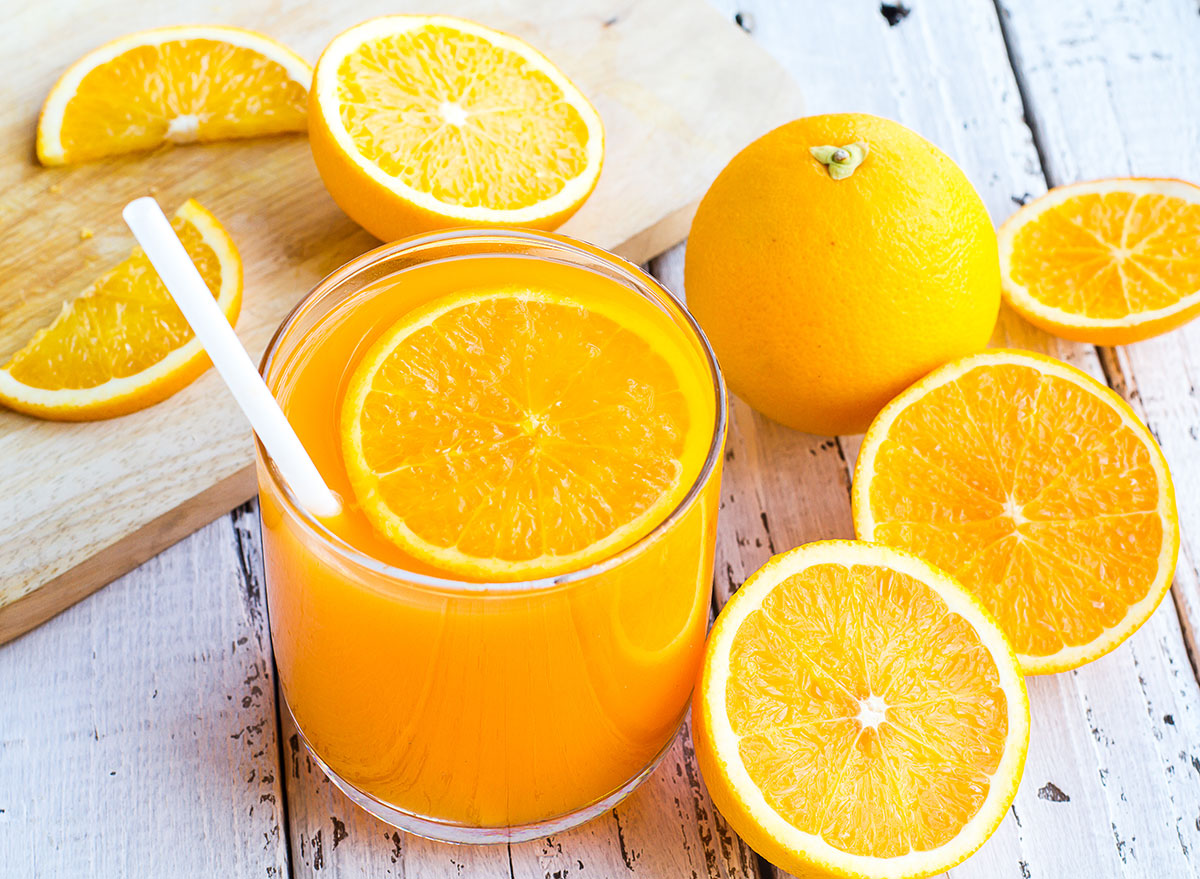
Just because you're trying to avoid added sugar doesn't mean you need to skip on the natural sugars from things like fruit and juice.
"When people are trying to limit their added sugar intake, they may skip drinking 100% orange juice with their breakfast," says Manaker, "but 100% OJ contains no added sugars, is chock-full of important immune-supporting nutrients, and a new study even suggests 100% orange juice has the potential to help fight inflammation."
At first glance it may not seem like inflammation would impact the strength of your immune system, but according to Manaker, "people with low-grade inflammation may have an increased risk of infection, so including this juice in an overall healthy diet can be an important addition to immunity strength."
Not getting enough vitamin D
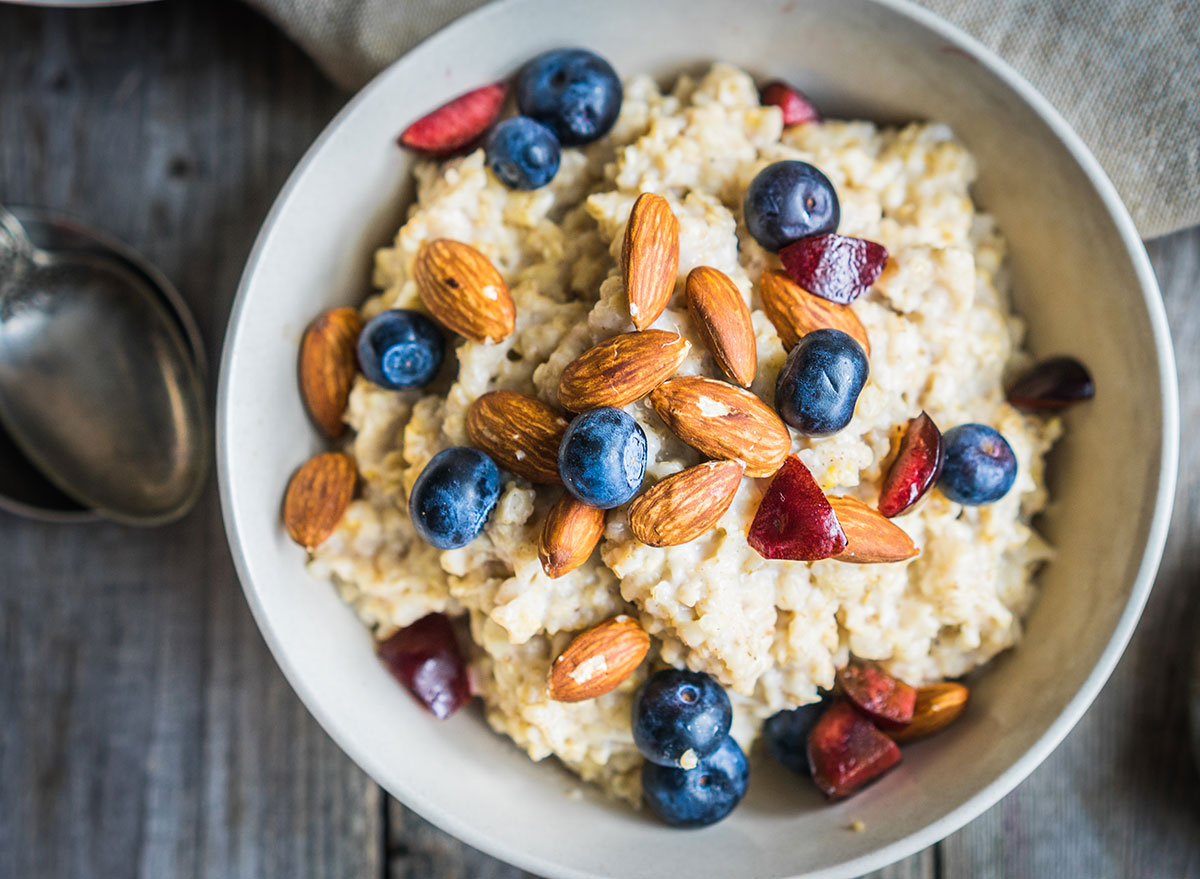
Vitamin D is an important component in boosting your immune system, and according to D'Angelo, it can be easy to accidentally skip over this key nutrient when you're preparing your breakfast.
"Foods like salmon, oatmeal, eggs, milk, and some juices can be great sources of Vitamin D," says D'Angelo, "but if you have a habit of rushing through breakfast and heating up a Pop-Tart to save time, you may not get the adequate amount of vitamin D that you need for your day."
It's important to note that although getting enough vitamin D through your food or a supplement is important for immune function, it's still just as important to eat a balanced diet and get enough exercise on a regular basis.
Forgetting the protein
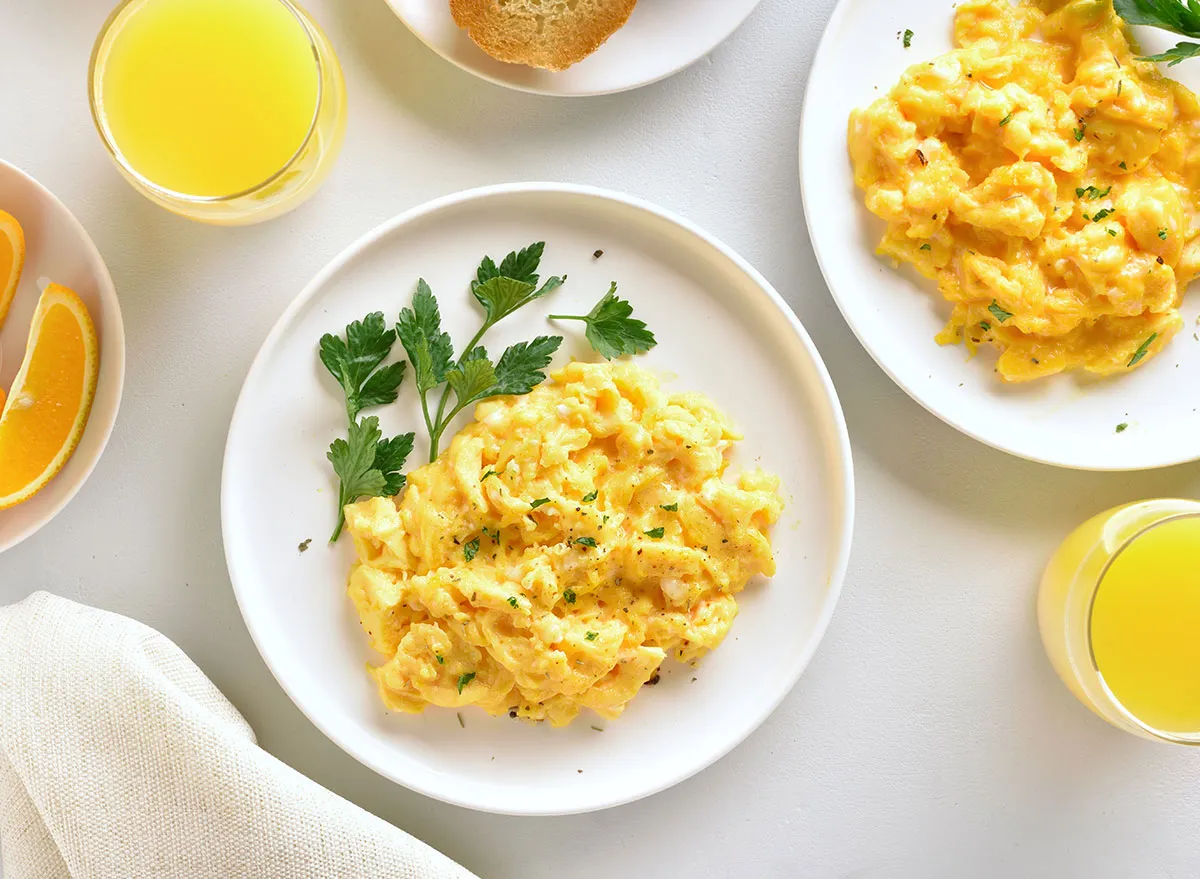
According to Manaker, protein is another important component of maintaining a healthy immune system, so getting enough for breakfast is key.
"Many breakfast foods like breakfast pastries or french toast are full of carbs but quite low in protein, so adding protein-heavy foods like eggs, milk, and even tofu to your breakfast routine can help support the immune system," says Manaker, "as protein is a necessary part of this aspect of health."
Eating too much fast food
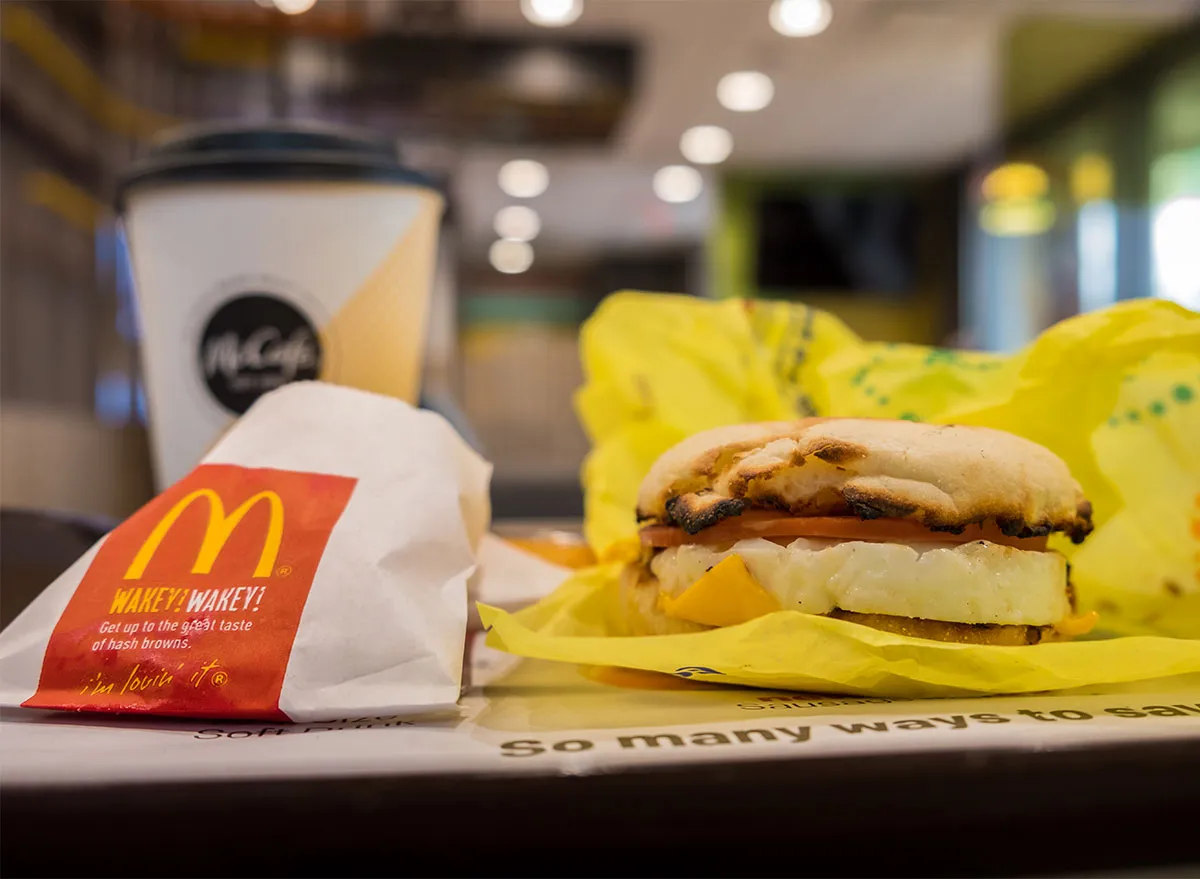
And finally, according to our experts, pulling through the McDonald's drive-through for breakfast too often can wreak havoc on your immunity.
"Sure, fast food can be extremely convenient, but it can also be loaded with salt," says Manaker, "and since a high-salt diet has been linked to a weakened immune system, sticking to foods made without too much sodium is a better choice."
